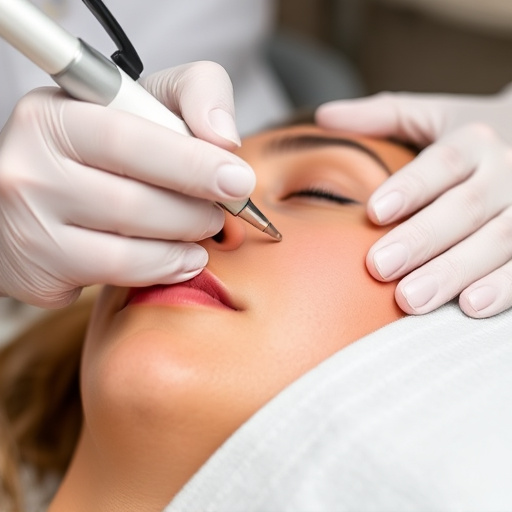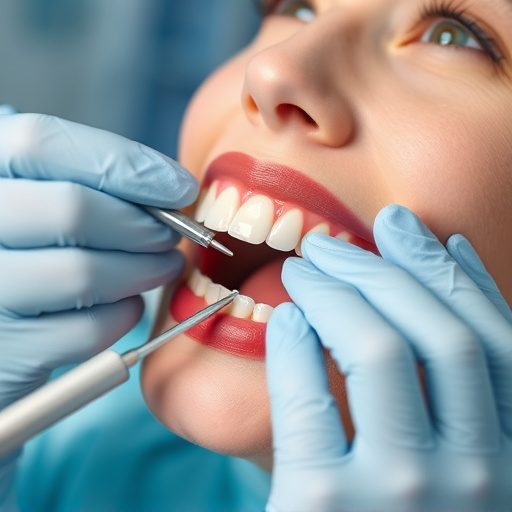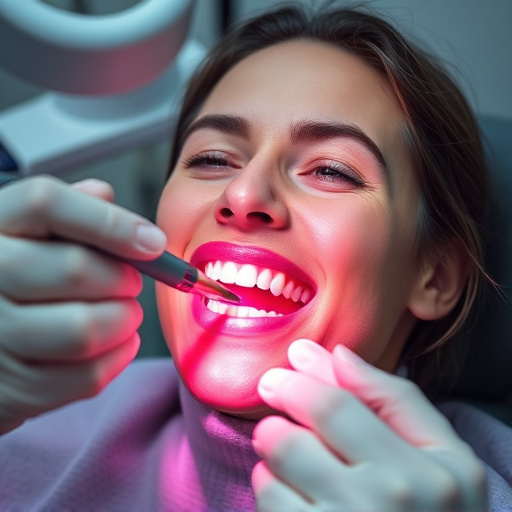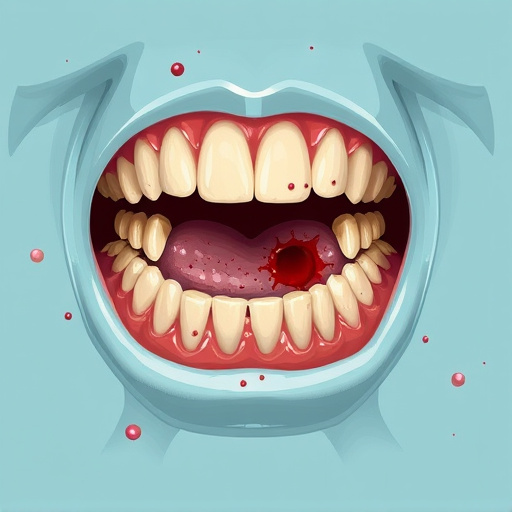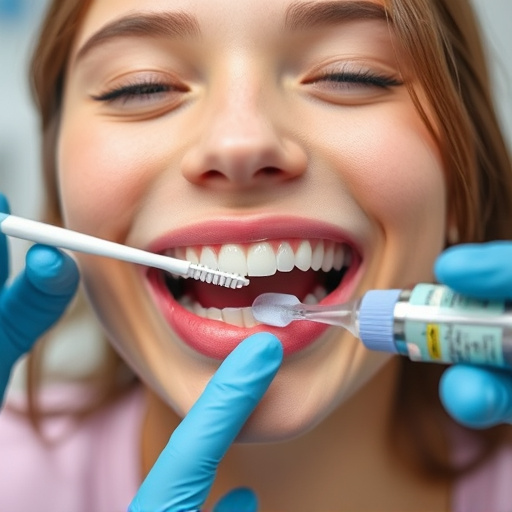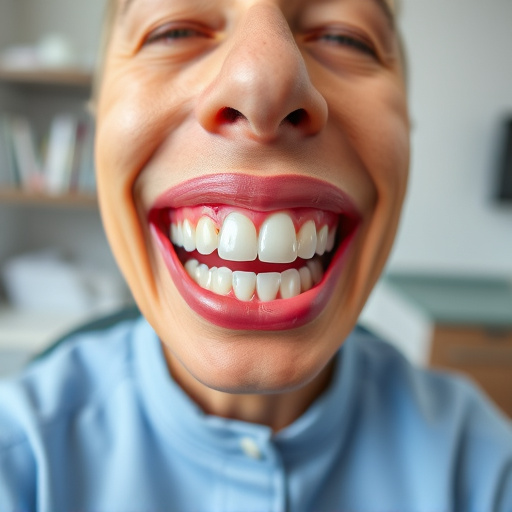Missing teeth impact health beyond aesthetics, causing nutritional deficiencies due to limited food choices. Solutions like dentures or dental implants restore chewing and speaking functions, preserve facial structure, and enable proper digestion. Early intervention through routine oral exams is crucial for identifying tooth loss issues early. Modern digital age solutions include advanced implants and custom bridges for multiple teeth replacement, enhancing oral health and smile aesthetics. Transitioning to new prosthetics requires careful consideration of comfort, gum healing, diligent oral hygiene, regular dental check-ups, and following professional advice.
Are you ready to reclaim your smile and eating confidence? Getting back to proper nutrition can be challenging with missing teeth, but modern dentistry offers effective solutions like multiple teeth replacement. This transformative process addresses both aesthetic and functional needs, allowing you to enjoy a varied diet again. In this guide, we’ll explore the impact of missing teeth, discover advanced replacement options, and provide tips for a smooth transition to your new, improved dental prosthetics.
- Understanding the Impact of Missing Teeth
- Exploring Modern Solutions for Multiple Teeth Replacement
- Tips for Successful Transition to New Dental Prosthetics
Understanding the Impact of Missing Teeth

Missing teeth can have a profound impact on an individual’s overall health and well-being, extending far beyond just aesthetics. When teeth are absent, it disrupts the natural balance of chewing and speaking, which can lead to poor nutrition if left unaddressed. The loss of teeth often results in reduced food choices, making it challenging to consume nutrient-rich meals that support optimal physical and mental health. This is particularly concerning for seniors or individuals with existing oral health issues.
Multiple teeth replacement solutions, such as dentures or dental implants, offer a chance to restore functionality and confidence. These treatments not only fill the gaps left by missing teeth but also preserve facial structure, preventing bone loss that can occur when teeth are absent. In addition, they facilitate proper digestion and nutrition absorption, ensuring individuals can enjoy a varied diet again. Considering routine oral exams and general or family dentistry practices, early intervention and regular check-ups play a vital role in identifying tooth loss issues promptly, potentially improving long-term outcomes with multiple teeth replacement procedures.
Exploring Modern Solutions for Multiple Teeth Replacement
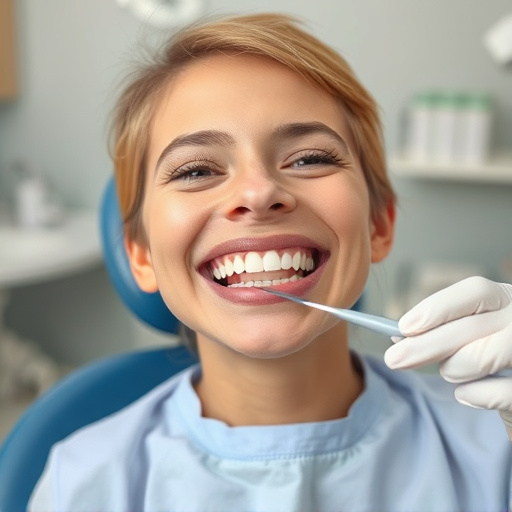
In today’s digital era, exploring modern solutions for multiple teeth replacement has become more accessible and effective than ever before. Traditional methods like dental crowns and cosmetic fillings while still valuable, often address individual tooth issues rather than comprehensive mouth rehabilitation. Thankfully, advancements in cosmetic dentistry have introduced innovative techniques tailored to patients with significant tooth loss. These include advanced implants that mimic natural teeth both functionally and aesthetically, as well as custom-made bridges designed to span multiple missing teeth.
The quest for optimal oral health goes beyond mere functionality; it’s also about enhancing one’s smile and restoring confidence. Modern dental practices offer a range of options, from durable and long-lasting dental crowns to cosmetically appealing fillings that blend seamlessly with surrounding teeth. These solutions not only provide structural support but also contribute to the overall esthetic appeal of your smile, ensuring you can enjoy your favorite foods again without worrying about your oral health or appearance.
Tips for Successful Transition to New Dental Prosthetics

Transitioning to new dental prosthetics after multiple teeth replacement can be a significant adjustment. To ensure a successful shift, it’s essential to prioritize comfort and proper care. Start by allowing enough time for your gums to heal fully after any procedures like wisdom tooth removal or tooth extractions. This healing period is critical for the long-term success of your new prosthetics.
During this transition, maintain good oral hygiene through regular brushing and flossing, being extra gentle around the areas where the new teeth are placed. Schedule routine oral exams to monitor your gums and ensure everything is healing as expected. Remember, how you care for your new dental prosthetics will directly impact your overall experience and long-term health, so be diligent in following any recommendations from your dental professional.
Reclaiming your smile and oral health with multiple teeth replacement is a significant step towards enhancing your overall well-being. By understanding the impact of missing teeth and exploring modern solutions, you can embark on a successful transition to new dental prosthetics. With proper care and adherence to tips for a smooth adjustment, you’ll soon experience the benefits of improved chewing function, restored confidence, and a vibrant, bustling life free from dietary restrictions.

